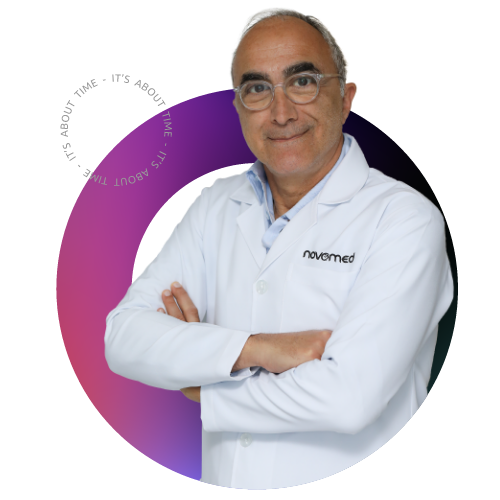What is a peptic ulcer?
Peptic ulcers are open sores that occur inside the lining of the stomach and the upper part of the small intestine.
Peptic ulcers include:
Gastric ulcers that affect the stomach from the inside
Duodenal ulcers that affect the inner part of the upper part of the small intestine (duodenum).
The most common causes of peptic ulcers are the H. pylori infection and long-term use of aspirin and non-steroidal anti-inflammatory drugs (Advil, Aleve, others). Stress and eating spicy foods do not lead to peptic ulcers. However, they can worsen your symptoms.
What are the symptoms of peptic ulcers?
- Burning sensation in the stomach; the most common symptom of peptic ulcers.
- Stomach bloating, fullness or belching
- Fatty foods intolerance
- Heartburn
- Nausea
Most patients with peptic ulcers do not show any symptoms. However, peptic ulcer can sometimes cause severe symptoms, such as:
- Vomiting
- Bloody vomit, which may appear red or black.
- Dark blood in stools, or black or tarry stools
- Difficulty breathing
- Nausea and drowsiness
- Unexplained weight loss
- Changes in appetite
What are the causes of peptic ulcers?
The digestive tract is lined with a layer of mucus that protects it from acid. But if the amount of acid increased or the amount of mucus decreased, you could develop an ulcer. Common causes include:
- Bacterial infection. Helicobacter pylori live mostly in the mucous layer that covers and protects the tissues lining the stomach and small intestine. Usually, H. pylori do not cause problems, but it can cause inflammation in the inner layer of the stomach, causing an ulcer.
- Regular use of pain relievers. Taking aspirin, along with some over-the-counter medications and prescription painkillers, may cause the lining of the stomach and small intestine to become irritated or inflamed.
- Peptic ulcers are more common in older people who take these painkillers more often or in people who take these medications to treat osteoarthritis.
Other medications. Taking some other drugs, such as steroids and anticoagulants, low-dose aspirin, and selective serotonin reuptake inhibitors may increase the chance of developing ulcers.
What are the complications of peptic ulcers?
- Internal bleeding. It may occur as a slow loss of blood that leads to anemia or as severe blood loss that may require hospitalization or blood transfusions. Severe blood loss may cause black or bloody vomit or black or bloody stools.
- Inflammation. Stomach ulcers can wear away (perforations) in the wall of the stomach or small intestine, which puts you at risk of severe infection of the abdominal cavity (peritonitis).
- Obstruction. Stomach ulcers can block the passage of food through the gut, causing you to feel full easily and causing you to vomit and lose weight either due to inflammatory swelling or scarring.
How to diagnose peptic ulcers?
To check if you have an ulcer, your doctor may review your medical history and perform a physical examination. Then you may need to undergo diagnostic tests, such as:
Laboratory tests that detect the H. pylori bacteria. Your doctor may look for the H. pylori bacteria in a blood or stool sample or through a breath test, which is the most accurate test to detect H. pylori.
Endoscopy. Your doctor may use endoscopy to examine your upper digestive system. During an endoscopy, your doctor passes a thin flexible tube with a camera at its tip down your throat and into your esophagus, stomach, and small intestine to look for ulcers.
If the doctor detects an ulcer, they may take a small sample of tissue (biopsy) for lab testing.
Upper gastrointestinal X-ray series. An upper gastrointestinal X-ray series produces images of the esophagus, stomach, and small intestine. During an X-ray, you swallow a white liquid (containing barium) that floods your digestive tract and makes the ulcers more noticeable.
What is the treatment for peptic ulcers?
Treatment for peptic ulcers depends on the cause, and it usually includes eliminating the H. pylori bacteria if present, reducing the need to use NSAIDs, if possible, and helping your ulcer to heal with medication.
Medicines may include:
- Antibiotic drugs to kill the H. pylori bacteria. You will likely need to take antibiotics for two weeks, as well as other medicines to reduce stomach acid, including proton pump inhibitors, and you may also be given a bismuth salicylate (Pepto-Bismol) supplement.
- Medicines to block acid secretions and stimulate healing. Proton pump inhibitors reduce stomach acid by blocking the activity of the acid-producing cells. These include medicines that are taken with or without a prescription.
- Medicines to reduce acid production. Acid blockers – also called histamine (H-2) blockers – can reduce the amount of stomach acid released into the digestive tract, soothing ulcer pain, and stimulating healing.
- Antacids to neutralize stomach acid. Antacids neutralize existing stomach acid and can quickly relieve pain. Side effects may include constipation or diarrhea, depending on the main ingredients of the medication.
- Medicines to protect the lining of your stomach and small intestine. In some cases, your doctor may prescribe medications called cell protection agents, which help protect the tissue lining your stomach and small intestine.


























